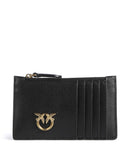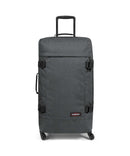Ordenar Características
-
Samsonite Paradiver Light Mochila para portátil forest -
Fjällräven High Coast Bolso mochila navy -
Vaude Proof Transformer 26 Mochila bicicleta burnt yellow -
Vaude Mineo Transformer 20 Mochila bicicleta heron -
Pinko Extra Slouchy Bucket bag nero/antique gold -
Vaude CityGo Bike 23 ll QMR 2.0 Mochila bicicleta black -
Pinko Airone Tarjetero nero/antique gold -
Thule Paramount Hybrid Bolsa de equipaje soft green -
Chrome Kadet Max Mochila sling indigo -
Fjällräven Skule 28 Mochila de senderismo black -
Coccinelle Raquel Bucket bag skin/gazpacho -
Vaude Proof Transformer 26 Mochila bicicleta black -
Eastpak Trans4 L Maleta con 4 ruedas black denim -
Thule Paramount Hybrid Bolsa de equipaje black -
Fjällräven Skule 28 Mochila de senderismo patina green -
Thule Paramount Hybrid Bolsa de equipaje nutria -
Victorinox Werks Traveler 6.0 Maleta con 2 ruedas black -
Brics Ferrara Juego de maletas (4 ruedas) green -
Liebeskind Correa para bolso milk -
BOSS Ray Riñonera black -
Victorinox Werks Traveler 6.0 Neceser black -
Liebeskind Hera Nylon Bolso de cosméticos sage -
Valentino Bags Kylo Riñonera nero -
Vaude CityTravel Carry-On Mochila con ruedas burnt yellow
Exclusive designer bags by Gucci
Founded in 1923 by Guccio Gucci in Florence, the Italian designer label Gucci initially created exclusive bags made of high-quality leather in a small workshop, which quickly gained popularity due to their craftsmanship. As the success grew, Gucci opened several branches in Italy. In 1947, the globally known Gucci logo, consisting of two connected stirrups, was introduced. This logo still adorns the brand's handbags today. In the 1950s, Gucci began its international rise and became one of the most famous handbag and fashion labels worldwide. Today, Gucci also produces successful collections of shoes and clothing alongside handbags. Since World War II, materials such as hemp, bamboo, and linen have been incorporated into production, adding to the distinctive style of Gucci handbags. Branches were opened in the USA and across Europe, and prominent personalities like Audrey Hepburn wore Gucci creations. Today, Gucci handbags are the epitome of luxury and craftsmanship and are a coveted status symbol worldwide.
Gucci sets new standards
In the 1980s, the Gucci heirs sold the brand to an investment company from Bahrain. Later, the Parisian luxury goods manufacturer Pinault-Printemps-Redoute acquired the brand, paving the way for a new era. The creative turning point came in the late 1990s with Tom Ford as the new creative director. Ford not only brought fresh ideas to the design but also propelled Gucci back to the top of the fashion world. Under his leadership, sales steadily increased. In 1997, Gucci launched its first watch collection alongside many successful handbag collections, which also enjoyed great success. The following year, Gucci was named European Company of the Year. The name Gucci has become synonymous with luxury worldwide, continually setting new standards for exceptional materials and innovative design. In 2001, Gucci acquired the label of Stella McCartney, further strengthening the brand and solidifying its significance in the fashion world.
Gucci handbags as the epitome of luxury
Gucci bags represent the perfect blend of craftsmanship, quality, and groundbreaking design. The brand has constantly evolved while never losing sight of its traditional values. Today, Gucci is considered the benchmark for extraordinary luxury bags. The timeless designs and the selection of the finest materials make every Gucci handbag a unique masterpiece. Whether classic models or innovative reinterpretations – Gucci knows how to fulfill the desires of the most discerning customers. With a Gucci handbag, you are investing in a piece of luxury that is both functional and stylish.










































































































































































